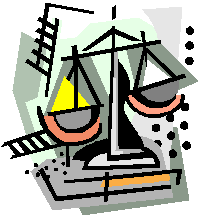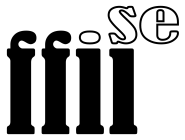
The Software Patents Game
According to the proponents of a European software patent, that is, according to the patent lawyers who represent the very largest American and Japanese corporations, software patents are already a part of the legal landscape in Europe, and the proposal for an EU directive which the European Parliament voted on in September 2003 was merely a technical issue of some minor clarifications.According to those who oppose software patents, there is no legal basis for granting patents on software in Europe, and never has been. If the EU directive had passed (in its original form) in September 2003, however, software patents would have been introduced through the back door by the civil servants, although this is without any doubt an issue that belongs at the political level.
So exactly what is it that is happening:
(1) Is the problem that there will NOT be any changes compared to the current praxis (whatever that may be)?
(2) Is the problem that things will become worse than (changed from) today?
Confusion is everywhere and the patent lobby can feel the scent of victory in the air. Excellent.
The Legal Game
So let us start by examining the current legal situation.
The activities of the European Patent Office EPO are based on an international convention called EPC, the European Patent Convention, which the EU countries have signed (together with some European countries that are not part of the EU). The convention describes both what should be patentable, and a lot of practical things about the procedures to be observed. It is the question of what should be patentable that is the main issue that we are interested in here.
In Article 52 of the EPC it is explicitly stated that
(2) The following in particular shall not be regarded as inventions within the meaning of paragraph 1:
(a) discoveries, scientific theories and mathematical methods;
(b) aesthetic creations;
(c) schemes, rules and methods for performing mental acts, playing games or doing business, and programs for computers;
(d) presentations of information.
[emphasis added]
Since it is only what the patent law defines as "inventions" that can be patented, this means that it should not be possible to get a patent on any of the things mentioned, including computer programs. Some might think that this would settle the issue once and for all --- the legislator could hardly express himself more clearly, one might think, and since the convention explicitly mentions computer programs, it can’t be argued that this is something that the legislator did not have in mind.
But this is not what the EPO thinks, funnily enough.
They instead argue the even if computer programs "as such" are not patentable (because not even they can really claim anything else when anybody can read what Article 52 says), it is something completely different if you use the computer program to run it on a computer, because then it is a machine that accomplishes something, and then it should suddenly be patentable.
(One might of course wonder what the EPO imagines that the legislator thought that people would do with their computer programs if they were not going to run them on a computer. Sing them? Decorate cakes with them? If anybody has an answer to this question, please let me know, because I’d be genuinely interested to hear it. Read "Why can't I patent my movie?" for a slightly humorous exploration of this breakneck piece of lawyer's logic.)
Anyway, based on the argument that a computer program that runs on a computer is something completely different from a computer program "as such", the EPO has adopted a praxis that means that software patents are de facto granted in Europe, and to this date about 30,000 such patents have been granted.
The problem with these patents (from the point of view of the patent holder) is that since it is not obvious, to put it mildly, that the patents have any legal basis, it becomes very uncertain if they will hold up in court if one tries to use them. To add to the uncertainty and confusion there is also the fact that although the EPO is a common institution for all the countries that have signed the EPC, it is the national courts in the respective countries that actually handle the patent disputes. This has lead to a situation where some countries are sticking to a practice that is based on the convention text, and therefore habitually reject software patents, whereas other countries have allowed themselves to become influenced by the EPO’s de facto practice, and accept the software patents.
This legal mishmash is what is the "current practice", and of course we shouldn’t have it like that --- everybody agrees on that, both proponents of software patents and their opposition. Since one of the main objectives behind the common European Patent Office is to create a harmonization of practice between the member countries, and this has obviously not worked in this case, a clarification is needed so that everybody knows what the rules are. Very well.
Time for the second act:
The Political Game
Where some politicians are trying to mislead their collegues, by saying things that are not true. And may still get away with it.
|
Christian Engström, January 2004 christian.engstrom (at) glindra.org The text is public domain. |

 På svenska
På svenska